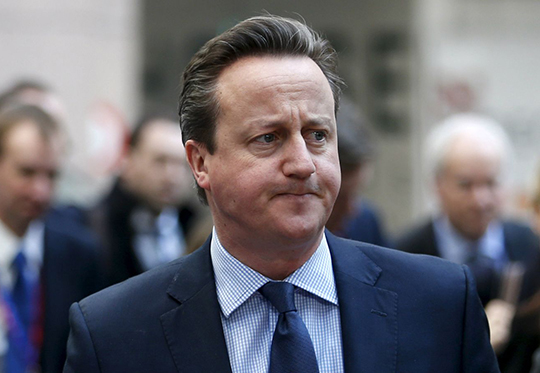London, Jun 24: Prime Minister David Cameron today announced his resignation in the wake of defeat in the crucial referendum after Britain voted to leave EU in a deadly blow to the 28-nation bloc that triggered a panic reaction in world markets and raised questions over immigration and other issues in the UK after the divorce.

Brexit won finally by a wafer-thin majority of 51.9 per cent in the referendum held yesterday that also raised questions over the longevity of the Conservative Prime Minister who aggressively campaigned for Remain.
Shortly after the official announcement, Cameron stepped out of 10 Downing Street to make a brief statement in which he announced his intention to resign, saying a new Prime Minister will take charge in October to launch the process to leave EU.
Watched by his wife Samantha, the 49-year-old British leader, who has just completed a little over a year in his second five-year term, assured the world, more specifically the European nations, that there will be no immediate changes in the way people will travel and services will be sold in Britain.
"The country requires a fresh leadership to take this forward. While it is important that I stay on to steady the ship, it is not right to be the captain. I will do everything I can to do to help," Cameron said as his voice choked with emotion.
Describing the referendum as a "giant democratic exercise", the Premier said the "will of the people must be respected" and their "instruction that must be delivered".
"There can be no doubt about the result...I would like to reassure markets and countries around the world that Britain's economy remains fundamentally strong," he said.
"In my view I think we should have a new prime minister in place by the start of the Conservative conference in October," Cameron said.
The Cabinet will meet on Monday and a timetable for him stepping down will be drawn up.
European Union president Donald Tusk said the bloc was determined to stay unified after Britain voted to leave and warned against "hysterical" reactions.
"Today on behalf of the 27 leaders, I can say that we are determined to keep our unity as 27," Tusk told reporters in Brussels.
EU Parliament President Martin Schulz expressed hopes that Britain's decision to leave the EU would not lead to contagion.
"The chain reaction that is being celebrated everywhere now by euroskeptics won't happen," he said.
The EU was the biggest single market in the world and "Great Britain has just cut its ties with that market," Schulz said.





Comments
Add new comment